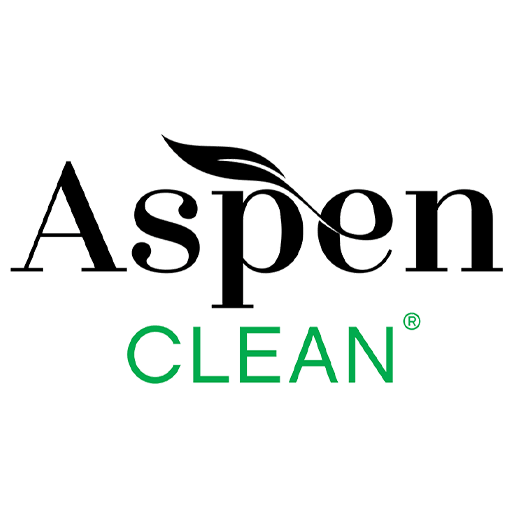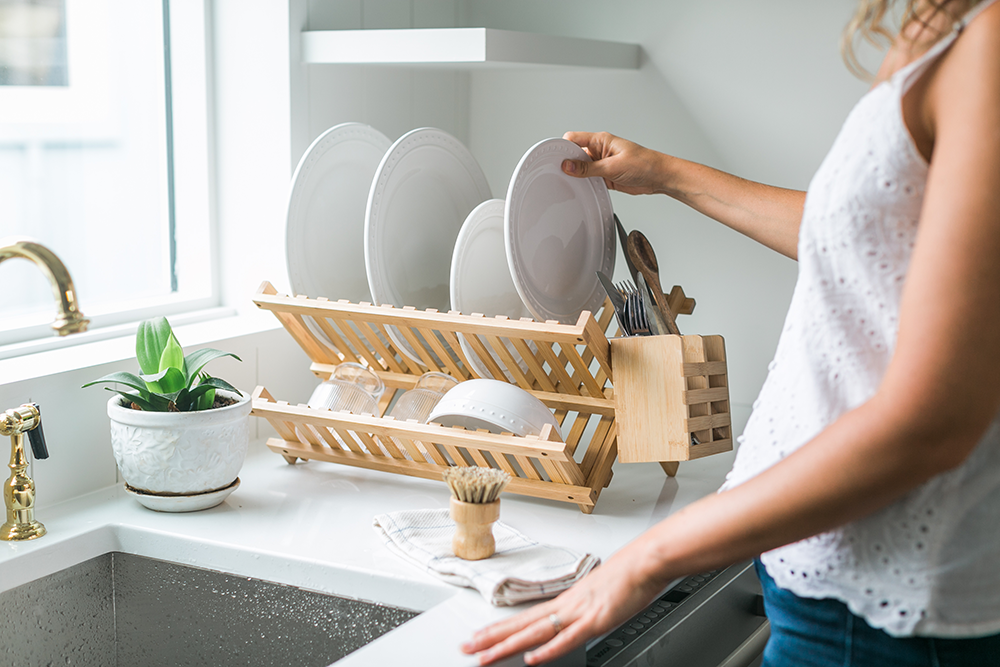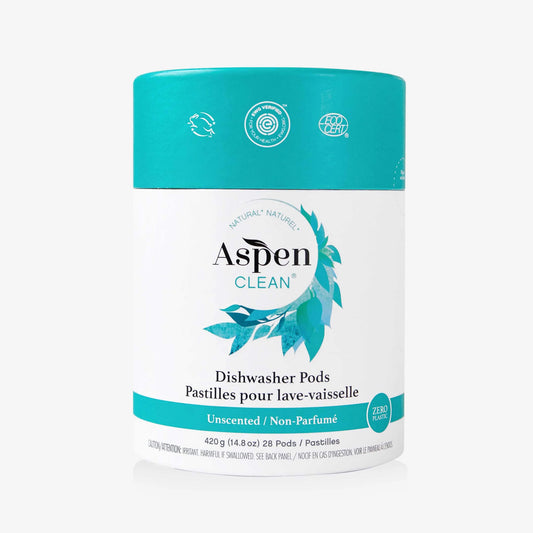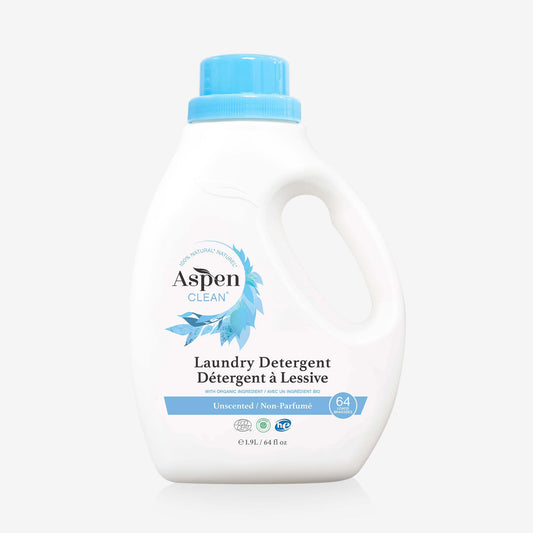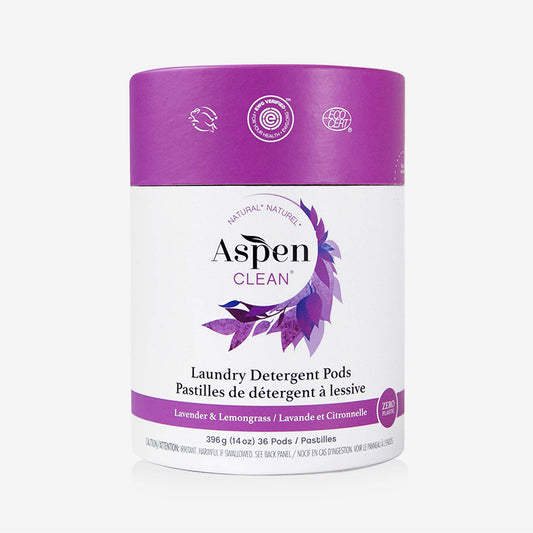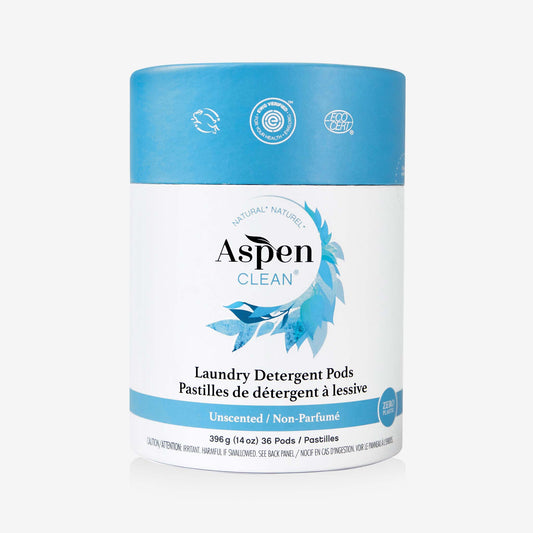Discover how dish soaps work, which dish soap myth could harm your health, and how to find an effective natural dish soap.
How do dish soaps work?
Hands up to anyone who has left the tap running longer than we should have...go on, we've all done it. It's a hard instinct to break when we're in the middle of a spring clean, especially in the middle of a deep clean in the kitchen, for instance. If we aren’t mindful of water while we clean, then we’re likely to keep the tap running or use water inefficiently.
5 Steps to ditch toxic chemicals while you wash dishes:
- Scrape off excess food.
- Fill the sink with water and add a few Aspen Clean Dish Soap pumps. Let it soak.
- Scrub using a scouring pad, then add some Superscrub Scouring Powder. Scrub.
- Rinse off suds & residue.
- Towel or air dry.

What do you need to clean your dishes naturally?
You need ‘surfactants,’ i.e. ‘surface-active agents.’ Soaps are a type of ‘surfactant.’
Water molecules are very attracted to one another, and surfactants help break this surface tension down, making it more available for mixing (and cleaning away dirt and grease).
Decoding good and bad surfactants
Surfactants are essential for dish soap or liquid detergent to be effective; however, many conventional dish soaps available to consumers contain synthetic chemical surfactants that pose potential health risks.
Two of the more commonly used synthetic surfactants are:
✔ Sodium lauryl sulphate or sodium Laureth sulphate (SLS)
✔ Sodium lauryl ether sulphate (SLES).
These substances have been used as substitutes for natural soaps because they are effective and inexpensive. Despite these advantages, SLS can cause skin irritation and respiratory irritation. To mitigate this, manufacturers added ethylene oxide to SLS to form SLES. Unfortunately, SLES can be contaminated with 1,4-dioxane.
The good news is that a natural eco-friendly dish soap uses non-toxic surfactants in its formulations!
Natural dish soap manufacturers provide great alternatives for conventional dish soaps because they use ingredients such as lauryl glucoside and coco glucoside derived from natural sources such as coconut, palm oils and corn sugars.
Top tip:
Be sure to check that the palm oil is responsibly sourced from a supplier that meets sustainable standards, such as the Roundtable on Sustainable Palm Oil (RSPO) Supply Chain Certification Standard!
The Myth: Suds, Foam & Bubbles
SLS and SLES surfactants in conventional dish soaps (mentioned above) create lather and are used as foaming agents. Because SLS and SLES have been so widely used in cleaning products, many people associate bubbles, foam, and lather with cleaning power… but this isn’t the whole truth.
This is a misconception that could be harming your health
A bubble is simply a thin film of water trapped between two layers of soap molecules with an air pocket in the middle. Bubbles in water are a good indicator that soap is present in the water, but they don’t tell you how effective that soap is.
Instead, bubbles show the soap’s ability to attract water. For a soap to be an effective cleaner, it should be good at attracting water and oil; this cannot be judged by how much soap bubbles or foams.

Does dish soap need to disinfect?
As with many questions, there are valuable points for both sides here.
If someone in your home has a sensitive stomach or a compromised immune system, disinfecting dishes is probably a good idea.
Otherwise, disinfecting dishes is generally unnecessary, especially because many disinfecting dish soaps have ingredients that could harm your health. For exampharm is a common disinfectant and is linked to several health issues, such as endocrine disruption and allergy development, particularly in children. You can find more information regarding natural disinfectants in our other articles. It is also considered highly toxic to aquatic environments.
If dishes are washed correctly, dirt, grease and bacteria should be washed off the dish with soap and water or eliminated with a hot water bath. If disinfecting your dishes is necessary, soak washed dishes in a hot water bath at 170°F for at least 30 seconds.
Top tip:
Take special precautions when washing utensils used to prepare problematic foods (such as raw chicken). We recommend washing and disinfecting with non-toxic disinfectants such as hydrogen peroxide and wiping surfaces with Natural kitchen cleaners containing ingredients with disinfecting properties.

How dish soap is affected by hard water
Flashback to your chemistry lessons where your teacher likely would have talked about hard and soft water. Now is the time to see this in use!
When searching for that perfect dish soap, the "hardness" of your water supply is an important factor to consider.
If you live in an area with hard water, you could experience soap scum. Hard water contains dissolved minerals such as calcium and magnesium gathered as water moves through rocks and other substrates. Excess minerals in hard water react with soap molecules to produce an insoluble solid (soap scum) before they react with water. This can interfere with the effectiveness of your cleaning products. Moreover, this physical build-up of soap scum also adds to your cleaning tasks.
What does this mean for you?
More soap is generally required to clean in hard water areas compared to soft water areas.
How do you know if you live in a hard water area?
The hardness of water is measured in milligrams per litre or grains per gallon, but there are some things to look for if this information isn’t readily available.
Hard water can result in mineral build-up (called scale) around water fixtures, white spots on dishes, and dry, irritated hands and skin. You can also refer to municipal websites for information on the hardness of the water in your area.
Top tip:
If you are in a hard water area, it is also a good idea to look for a dish soap that contains glycerin, which helps keep hands moisturized.
7 tips for hand washing dishes effectively
Effectively hand washing your dishes doesn’t just come down to the dish soap you use.

|
1. Let things soak | Soaking charred or greasy pots and pans is common practice for good reason. Leaving dirty dishes to soak gives the soap more time to attach and lift mess. |
 |
2. Wash with hot water | Getting into hot water isn’t always a bad thing! It’s unlikely that you’ll be able to hand-wash dishes with water hot enough for disinfecting, but you can leave dishes in a tub of hot water before and after washing to help with sanitation. |
 |
3. Wear gloves | Gloves are a good idea for protecting your hands from drying out in the washing process and will also help you tolerate higher water temperatures for more efficient washing. |
 |
4. Wash clean to dirty | Washing cleaner items first helps to limit the spread of dirt and germs from very dirty dishes to relatively clean ones. It will also stop your sponge, dishcloth, or scrubber from becoming coated in grease and dirt. |
 |
5. Use a scrubbing powder | For dishes that are soiled with a baked-on mess or thick grease, use a scrubbing powder. A scrubbing powder not only adds extra soap but physically scours away dirt with its granules as it lifts it. |
 |
6. Squeaky clean | To make sure your dishes are truly clean, listen for a squeak. If your finger is sliding, there is either still a layer of grease on the dish, or you haven’t rinsed the soap off completely. |

|
7. Air dry | Allowing your dishes to dry on a rack will save you time whilst also being more sanitary because you don’t run the risk of spreading germs with a dirty dishtowel. If you really have to dry with a cloth, make sure it is a fresh one. |
Ready to make the switch to a natural, non-toxic dish soap that works?
Try AspenClean natural dish soaps: made without SLS, SLES, triclosan, and synthetic chemicals and are lightly scented with pure organic essential oils Or try the unscented dish soap with no scents at all.
Try AspenClean natural dish soaps and dishwasher pods: available unscented as a great option for people with allergies and sensitivities. Don't forget to read our non-toxic dishwasher detergent guide and all our other cleaning tips and laundry detergent tips and tricks.
